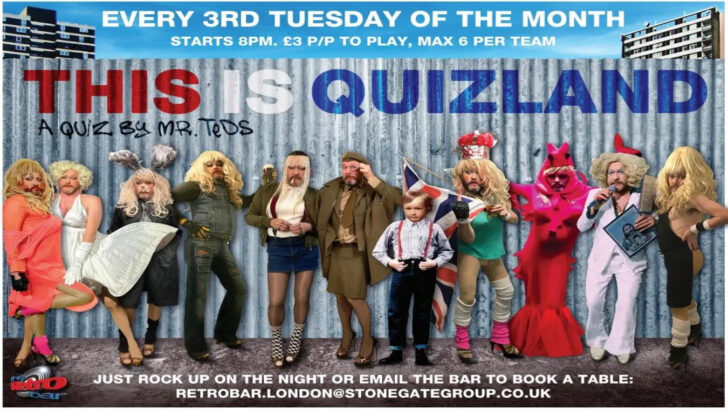Almost 80 years after his death at the hands of General Franco’s fascist Nationalist regime, Federico Garcia Lorca remains Spain’s most famous poet. His last days are the focus of a new production at the Drayton Arms Theatre. Cliff Joannou spoke to the play’s writer Nicholas de Jongh about Spain’s greatest gay cultural figure…

You don’t have to know that much at all! But these are the crucial facts. Federico Garcia Lorca is remembered as one of the great, theatrically transformative poet-playwrights of the early twentieth century. His plays range from his violent rural tragedies Blood Wedding and the House of Bernarda Alba, which reek of fatal heterosexual desire, to the gay, surreal and outspoken The Public and When Five Years Pass, the last two of which are as unknown in England as the first two are famous.
Tragically, his name endures in the gruesome history of the Spanish Civil War (1936-39) for being the most famous and mysterious death-victim of General Franco’s Nationalists – fascists to be precise. It is a quite terrible story in which fate plays a role. I found bringing the last phase of Lorca’s life in the form of a play very saddening, as though it were happening all over again.
Lorca, who was 38 in 1936, had returned from Madrid to the family home in Granada to be with his parents after the Civil war broke out. It was a disastrous decision. His friends had rightly urged him that Madrid was far safer terrain for him. Granada was natural Franco territory; it fell under fascist control almost as soon as the war broke out.
Almost as soon as he’d returned, Nationalist thugs made their first visit. Lorca’s attempt to escape his pursuers, his decision to go into hiding, his swift capture in a huge police operation, his imprisonment, probable sexual torture and summary execution all happened within the space of a few days in the Spain’s hot, high summer of 1936. It was just a month after the Civil War had broken out.
“Franco is largely reviled as a hideous barbarian when he’s remembered at all. But Lorca lives and is celebrated all over the civilised world. It’s a dark victory”
Why was he was killed?
There is no certain answer. Was it his moderately left-wing views – he refused to join the Communist party? His gayness in an overwhelmingly homophobic Spain? Or was it the provocative fact of his political conviction in concert with his sexuality that account for his murder? There are no certainties but it seems his gayness was a crucial factor in his arrest. His body has never been found though there have been excavations at one of the burial grounds where piles of bodies were thrown into a mass grave.
Though the play tracks the last weeks of Lorca’s life, it’s set within a larger context than that of Spain. It shows how Britain betrayed Spain with British intelligence in the nasty shape of associates of M16, and a few well-placed businessmen in London and America also playing their role in helping Franco to power.
Tell us about the recent revelations that came to light about Lorca.
In 2012 the broadsheets in London reported that Juan Ramirez de Lucas, a distinguished art and architecture critic, had taken a box of mementoes, including diaries and letters and told her that he wanted them to be revealed to the world when he was dead.
When the box was opened it was discovered that at the age of 19 in 1935 Juan had become Lorca’s last secret lover. Those who knew about the affair never said anything public about it. They were true to the Spanish male’s cast of mind that regarded silence as the best policy in matters of gayness. It was revealed, too, that Lorca wanted to take Juan with him to Mexico where he had been invited. Juan went home to ask for permission from his father. In those days you were not allowed to go abroad without parental permission. His father angrily refused. Lorca went back to Granada and communicated by letter with Juan – a letter was discovered in the box – telling him to be patient. He remained hopeful that a way out for Juan could be discovered. He hoped and waited too long. The Nationalists found him. If he had gone straight to Mexico instead of delaying he might have lived and written far more, dying after Franco.
Peter Day’s book Franco’s Friends: How British Intelligence Helped Bring Franco to Power (2011) is a detailed, vivid portrayal of the England of 1936 with M16 and assorted businessmen in London, New York and Madrid conspiring to bring Franco to power. This spider’s web of fascist intrigue had been noticed before but never revealed in such awful detail.

Those are very shrewd questions indeed. Spain’s attitude to Lorca’s sexuality is often to try and ignore it altogether. Until the 1980s Lorca’s homosexuality was not even mentioned by literary critics unless referred to as something too disgusting to detail. In more recent times those critics have argued that Lorca’s gayness is a personal matter, has no bearing upon his poetry and plays and does not therefore need to be discussed. Lorca’s first and best biographer, Ian Gibson deals with the problem in Lorca and his world, – which has never been published in Britain. Gibson has written bitterly that Lorca’s brother, Francisco and his sister Isabel “made every effort to expunge any trace of homosexuality from his life and work.” In earlier years he judged “Spain couldn’t accept that the greatest Spanish poet of all time was homosexual.”
The centenary of Lorca’s birth was celebrated in 1998 with a documentary Portrait of a Family. In it Lorca’s gayness was either dismissed as unimportant or simply ignored.
Not quite a total veil of silence but you could not miss the sense in which Lorca was being betrayed as they hustled him discreetly back into the closet.
Your last play, Plague over England also focused on the tumultuous life of another high profile gay man, the great actor John Gielgud. What resonates most with you about Federico Garcia Lorca´s life to have turned his final days into your next play?
I didn’t want to write The Unquiet Grave of Garcia Lorca as a wretched doom and death play. It’s easy just to look on Lorca as a victim of homophobia, spurred by the narrow-mindedness of Spain’s oppressive and cruel version of Catholicism. I wanted to try and show something more positive.
Early on he felt guilty, ashamed and furtive about his gayness.
His empathy for outsiders – for gypsies, for blacks and famously for women whose sexual desires were thwarted in the cruel strait-jacket of Catholicism – was powered by his sexuality.
He fought free of his sense of inferiority. After his love affair with the beautiful, bisexual sculptor Emilio Aladren collapsed he had a sort of breakdown, went to New York and then found himself – and quite a few young Cubans, too – in weeks of recovery, discovery and delight.
I wanted to suggest that though Lorca’s life ended in tragedy, his sexuality, which caused him so much grief, was also the enduring source of his wonderful creativity. His own sexual frustrations, disappointments in love and sometimes despairing sense of apartness were channelled into poetry. Today, Franco is largely reviled as a hideous barbarian when he’s remembered at all. But Lorca lives and is celebrated all over the civilised world. It’s a dark victory.
Although today they are two of the most progressive countries in the world in terms of gay rights, Britain and Spain weren’t always so forward thinking. What was life like in Spain for gay men during Lorca’s time?
Lorca knew quite a lot of gay artists, some of whom were more open about their sexuality than he was – though Lorca’s late Dark Sonnets, if you can read them in Spanish – are absolutely remarkable. They didn’t see the full light of day until the 1980s. They make it clear they’re about gay love and desire. But reading about Lorca you gather a sense of Spain as a country in the 1930s where men were obsessed by machismo and homophobia in a far more intense way than in Britain then or now. It was a state of bigotry common not just to the religious and conservative but to the liberal, the left wing and artistic. Lorca had some friends who preferred to pretend he wasn’t gay. The subject was never discussed. Silence was the policy. Priests were often even more virulent in their fear and loathing of gayness – perhaps because some of them [were closet homosexuals], like that gay-hating Scottish Cardinal a couple of years ago who fell from grace to disgrace when allegations about his relationships with young men were brought into the open.
• The Unquiet Grave of Garcia Lorca opens at the Drayton Arms Theatre, Old Brompton Road, on Tuesday 30th September.


















